OUR PEOPLE
We are a highly interdisciplinary team. Our approach combines techniques from a range of disciplines, including Corpus Linguistics, Text Mining, Natural Language Processing, Machine Learning, and Geographic Information Systems. We come from:
This project evolves from a long standing interest in American Colonial Archaeology and History and a set of interdisciplinary collaborations by the members of our team.
Lancaster University
Our UK team is based at the History Department and is part of the Digital Humanities Hub.
Museum of Templo Mayor
Our Mexico team is based at the National Institute of Anthropology and History (INAH).
University of Lisbon
Our Portugal team is based at the Institute of Engineering and Computer Systems (INESC-ID).
MEET THE TEAM
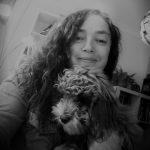
Prof Patricia Murrieta-Flores
Principal Investigator
I am the Co-Director of the Digital Humanities Hub at Lancaster University. My interest lies in the application of technologies for Humanities and my primary research area is the Spatial Humanities. My main focus is the investigation of different aspects of space, place and time using a range of technologies including GIS, NLP, Machine Learning and Corpus Linguistics approaches.
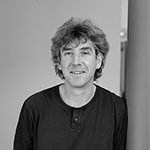
Prof Ian Gregory
UK Team Leader
I am a geographer by training and have spent much of my career working applying Geographical Information Systems (GIS) to historical research, a field that has become known as Historical GIS. As a result of the growth of Digital Humanities, I have become particularly interested in using GIS with texts as well as the more traditional quantitative sources.
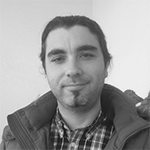
Dr Bruno Martins
Portugal Team Leader
Bruno Martins is an assistant professor at the Computer Science and Engineering Department of IST at the University of Lisbon, and a researcher at the Information and Decision Support Systems Lab of INESC-ID, where he works on problems related to the general areas of information retrieval, text mining, and the geographical information sciences. For more information click here.
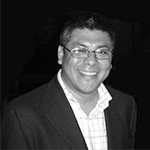
Dr Diego Jiménez-Badillo
Mexico Team Leader
Diego Jiménez-Badillo is Senior Researcher at Instituto Nacional de Antropología e Historia (INAH, Mexico). He is also Chairman of RedTDPC (Research Network for the Application of Digital Technologies to Cultural Heritage). His research areas include: Computer vision and machine learning applied to cultural heritage; spatial analysis, and 3D modelling among others.
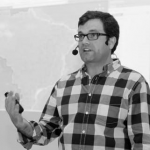
Dr Jacinto Estima
Associate Investigator
Jacinto Estima is an Assistant Professor at the Technology Department of “Universidade Europeia”, Portugal, and a researcher at the Information and Decision Support Systems Lab of INESC-ID, where he works on problems related to the Geographical Information Sciences and Information Management.
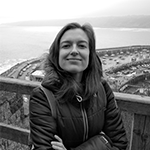
Dr Raquel Liceras-Garrido
Research Associate
I am a Research Associate on ‘Digging into Early Colonial Mexico’ project at Lancaster University with a background in archaeology, especially concerning GIS and landscape. My research interests are in the use of computer applications in Spatial Humanities, particularly how to translate information from written sources and historical documents into spatial data that enable us to approach well-known historical episodes from a different perspective and contribute to the historical narrative.

Mariana Favila Vázquez
Research Associate
I’m a doctoral candidate in Mesoamerican Studies at UNAM; a visiting lecturer in archaeology at the ENAH (National School of Anthropology and History) and a specialist in GIS. My research has focused on the Prehispanic and the indigenous colonial traditions of navigation in the Mesoamerican cultural area. I have published several articles and one book related to the application of spatial analysis and aquatic routes in Mesoamerica and the New Spain. You can download my book here.
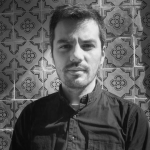
Dr Miguel Won
Research Associate
Miguel Won is a FCT Postdoctoral researcher at INESC-ID. He received a PhD degree in Particle Physics from the University of Coimbra in 2014. He is currently junior researcher at IDSS/INESC-ID in the field of Computational Social Sciences, in particular, Political and Communication Studies, with a special focus in the Portuguese scenario.

Aban Flores Morán
Associate Investigator
Aban Flores Morán studied a degree in Archaeology at the National School of Anthropology and History (ENAH, México) and completed a master’s and doctorate in Art History at the National Autonomous University of Mexico (UNAM). He is a full-time Professor at the Art Department of the Center for Education for Foreigners (CEPE) of the UNAM and has taught courses at the National School of Anthropology and History, the Autonomous University of San Luis Potosí (UASLP), the Hellenic Cultural Center; and the Postgraduate Program in History of Art (UNAM) He obtained the Alfonso Caso medal, awarded by the UNAM, in 2014 and has collaborated in archaeological projects of Monte Albán, Quintana Roo and Tlatelolco. His line of research focuses on the study of the transformations, continuities and co-existences of the indigenous and western image during the sixteenth century in the New Spain.
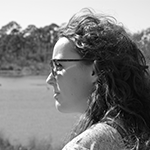
Katherine Bellamy
Research Assistant
I am a Research Assistant at Lancaster University. My background is in history, particularly indigenous and colonial histories in the Americas. I completed my MLitt in Transnational, Global, and Spatial History at the University of St Andrews, with an emphasis on the Digital Humanities. My research interests relate to the application of computational methods within the study of history and preservation of cultural heritage, as well as historic cartography and concepts of space and place.
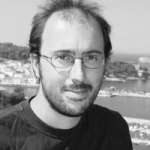
Dr Werner Stangl
Research Partner
I am a historian of colonial Spanish America at the University of Graz where I lead the HGIS de las Indias project, reconstructing territorial organization and settlement patterns of 18th century Spanish America in a spatio-temporal database. In historiography, I am especially interested in understanding the social constructions of colonial space. More generally, I work towards advancing open linked digital infrastructures and ontologies (not only spatial) with cross-project potential for the field.
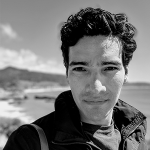
Edgar Franco Vivanco
PhD Student
I am a PhD Candidate in Political Science at Stanford University. My research interests lie in the intersection of the political economy of development, comparative politics, and history. In my dissertation titled Strategies of Indigenous Resistance and Accommodation to Colonial Rule I study the complex and strategic approaches that Indigenous people employed to confront European rule. My research is multi-method and combines statistical analysis, archival research, GIS, text analysis, machine learning, and survey experiments. For more information click here.
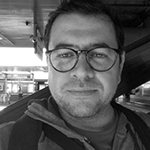
Ricardo Aguilar-González
PhD Student
I am a PhD student working on the history of food in colonial Mexico (New Spain), especially in XVI and XVII centuries, at the Department of History at the University of Warwick (UK). In my research project “Mapping food and drink in New Spain (1535-1600)” I use sixteenth-century Relaciones geográficas de Indias and Francisco Hernández’s Historia medicinal. I analyse the intersections between food and drink, identity, and religion with geographic features like altitude and access to resources in order to map, with the use of ArcGIS, culinary regions in colonial Mexico and Guatemala.
I have also been involved in projects dealing with pre-Hispanic and colonial history of Latin America, history of New Spain indigenous nobility, and history of science in New Spain.
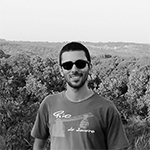
Luís Paiva Santos
PhD Student
I am a Master’s student at Instituto Superior Técnico (IST) and I’ll carry out research for my PhD at the DECM Project. I hold a BsC in Computer Science from the same university. During the academic year of 2016/2017 I was an Erasmus student at KTH, Sweden, mostly taking courses from the MsC in Machine Learning programme that KTH offers. My research interests are in Machine Learning, Natural Language Processing, Deep Learning methods and to a lesser extent Machine Translation.










